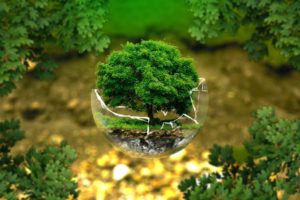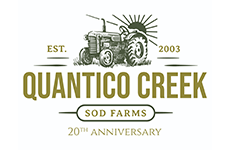
Doing your part for the environment doesn’t need to be challenging or complicated. The first step to achieve all of this is to keep your lawn well-fed.
Doing your part for the environment doesn’t need to be challenging or complicated. Sometimes, even the smallest measures will do. Are you wondering how to get started? Then consult our helpful guide!
Feed Your Lawn
The first step to achieve all of this is to keep your lawn well-fed. This means picking a fertilizer that doesn’t have any phosphorus in it. Also, avoid over-applying lawn food. Be sure to read all of the directions on the fertilizer label. Finally, make sure that it isn’t going to rain the next day. Although this sounds inconsequential, it makes more of a difference than you might think. After all, you don’t want the fertilizer to get washed away before it has some time to settle. The fertilizer is also bad for the environment if it leaches into the groundwater underneath your lawn.
Keep It Clean
Do your best to keep your lawn clean. Leaves, lawn products, and grass clippings need to be kept off hardscapes and sidewalks to prevent any unintentional damage. Any debris that is left behind should be swept back onto the lawn, as counterproductive as this sounds. Put fertilizer back into the bag if you don’t need it or if some of it spilled. That way, you can prevent it from becoming a pollutant that will harm the environment around your home. This measure also helps to protect waterways and storm drains, especially if your lawn, garden, or landscaping tends to get flooded whenever it pours down rain.
Add Some Mulch
One of the best ways to revitalize your lawn is to lay down some mulch over the sod. Regular mulch has many benefits, some of which you might already be familiar with; but did you know that grass clippings and fallen leaves can help make a difference, too? They help infuse more nutrients back into the soil while minimizing the effects of soil erosion and runoff. Your lawn may need nutrients, but the bodies of water around you don’t.
Add a Buffer Zone
Put up a barrier between your lawn and any nearby waterways. How do you do this, especially if you live on the water? Leave 10 feet of grass that are left uncut and unmaintained, so that there are no mowing, feeding, or pesticides inside this zone. Be sure to pick plants that don’t need much fertilization or watering in order to flourish so that it doesn’t ruin your curb appeal.
Have More Questions? Stay in Touch!
Order early, and order often to ensure the best service possible. Contact us through our online page. Find us at 27616 Little Lane, Salisbury, Maryland 21801. Our phone number is 410-726-6103, and our fax number is 410-742-6550. Speak to Jason Anderson for Turf Grass Sales. Reach him by email at jason@quanticocreeksod.com. Finally, follow us on social media on Facebook, LinkedIn, and our blog!
